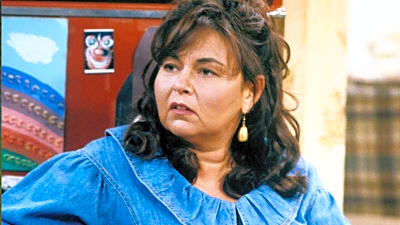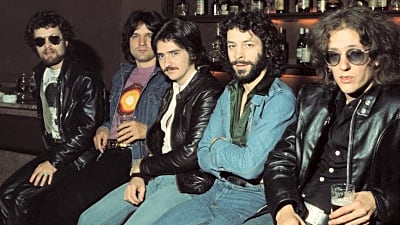Hold onto your seats, action junkies—the whispers are getting louder, and they’re all pointing to one electrifying possibility: Jason Bourne might be coming back to theaters. After nearly a decade of silence since 2016’s somewhat disappointing “Jason Bourne,” director Edward Berger has just dropped some tantalizing hints that have sent the spy thriller community into overdrive.
The man behind critically acclaimed films like “Conclave” and “All Quiet on the Western Front” recently sat down with Empire magazine and revealed something that made every Bourne fanatic’s heart skip a beat. When asked about the long-rumored sixth installment in the Bourne franchise, Berger didn’t just give a polite “maybe someday” response—he opened the door wide with genuine enthusiasm.
The Challenge of Living Up to a $1.64 Billion Legacy
Here’s the thing that makes this situation absolutely fascinating: we’re talking about a franchise that has grossed an astronomical $1.64 billion worldwide. That’s not pocket change, and it’s certainly not a legacy anyone wants to tarnish with a subpar sequel. The pressure is immense, and Berger knows it.
“[Bourne] has such a legacy. You don’t want to make a film where people say, ‘Ah, it’s not as good as the others.’ There are many hurdles,” Berger confessed to Empire. The raw honesty in that statement is both refreshing and slightly terrifying—because it means he’s taking this seriously. Really seriously.
But here’s where it gets interesting: instead of being deterred by the challenge, Berger seems energized by it. The director emphasized that any return would need to bring something completely fresh to the table—something that neither Paul Greengrass nor the other Bourne franchise directors have explored before.
Matt Damon’s Age Factor: Racing Against Time
Let’s address the elephant in the room that nobody wants to talk about: Matt Damon is 54 years old. While that’s certainly not ancient in Hollywood terms, action sequences aren’t exactly forgiving to aging bodies. Remember what happened with “Taken 3”? The choppy editing and obvious stunt doubles became a running joke precisely because Liam Neeson couldn’t physically handle the demands at 63.
The clock is ticking, and everyone knows it. Matt Damon himself acknowledged this reality years ago, telling The Guardian in an interview, “I’m definitely going to be replaced some day by some new young Jason Bourne. That happens to everybody and they reboot these things, and that’s totally fine. It’s difficult when you’re 45 compared to when you’re 29, but you still have to run as fast as you can.”
That interview was nearly a decade ago. Think about that for a moment. Matt was already feeling the physical strain at 45, and now he’s pushing 55. The window for a convincing return in the Bourne franchise is narrowing fast, which makes Berger’s current interest both exciting and urgent.
What Makes This Different from Previous Disappointments

The brutal truth about the Bourne franchise is that it peaked with the original trilogy. “The Bourne Identity,” “The Bourne Supremacy,” and “The Bourne Ultimatum” were masterclasses in gritty, intelligent action filmmaking. They revolutionized the spy genre with their handheld camera work, realistic fight choreography, and Matt Damon’s compelling portrayal of the amnesiac assassin.
Then came “The Bourne Legacy” in 2012, which tried to continue without Damon and fell flat. Jeremy Renner gave it his best shot, but fans weren’t buying it. The film felt like a hollow imitation rather than a worthy successor.
The 2016 comeback attempt, simply titled “Jason Bourne,” brought Damon back but failed to recapture the magic. Critics and audiences alike felt it was unnecessary add to the Bourne Franchise and a cash grab that added nothing meaningful to Jason Bourne’s story.
The Script Dilemma: Finding Fresh Territory
This is where Berger’s approach becomes genuinely intriguing. He’s not interested in simply dusting off the old formula and hoping for the best. The director made it clear that he wants to find something that Matt Damon has never played before in the Bourne Franchise.
That’s a tall order when you consider that we’ve already seen Jason Bourne as the confused amnesiac, the vengeful hunter, the reluctant hero, and the man seeking closure. What’s left? What unexplored psychological territory could the character venture into that would justify another film in the Bourne franchise?
The answer might lie in the current geopolitical climate. The world of espionage and international intrigue has evolved dramatically since 2016. Cyber warfare, deepfakes, social media manipulation, and artificial intelligence have transformed the landscape of modern spycraft. Perhaps there’s room for an older, wiser Jason Bourne to navigate these new threats.
The Bourne Franchise Renaissance
Berger’s timing couldn’t be more perfect when you look at what’s happening with other legacy franchises. “Top Gun: Maverick” proved that decades-old properties can make triumphant returns when handled with care and genuine creativity. The film didn’t just bank on nostalgia—it earned its emotional beats and delivered spectacular action sequences that felt both fresh and respectful of what came before.
Similarly, the “Mission: Impossible” series continues to find new ways to push Tom Cruise’s Ethan Hunt into increasingly impossible situations. Even “Fast X” managed to generate excitement despite being the tenth installment in an increasingly ridiculous franchise.
The key to all these successes? They didn’t just repeat what worked before—they evolved. They found new emotional stakes, new visual languages, and new ways to surprise audiences who thought they’d seen everything these characters had to offer.
What This Means for the Future of Action Cinema

If Berger does move forward with a sixth Bourne film in the Bourne franchise, it could signal a broader trend in Hollywood’s approach to legacy sequels. Instead of rushing into production to capitalize on brand recognition, studios might start prioritizing creative vision and narrative necessity.
The director’s measured approach—waiting for the right script, insisting on fresh perspectives—suggests a maturity that was missing from some previous franchise revival attempts. This isn’t about milking a cash cow; it’s about adding a meaningful chapter to a beloved story.
The Stakes Have Never Been Higher
Here’s what makes this potential return so nerve-wracking for fans: there’s virtually no middle ground. Either Berger and his team will deliver something that justifies bringing Jason Bourne out of retirement, or they’ll create another disappointment that further tarnishes the franchise’s reputation.
The good news? Berger’s track record suggests he’s not interested in half-measures. His recent work demonstrates a commitment to storytelling excellence that could be exactly what the Bourne franchise needs to reclaim its throne in the action genre.
Whether or not this sixth installment actually materializes remains to be seen. Scripts are still being developed, schedules need to be coordinated, and budgets must be approved. But for the first time in years, there’s genuine reason for optimism about the future of Jason Bourne.
More must-reads:
Customize Your Newsletter
 +
+
Get the latest news and rumors, customized to your favorite sports and teams. Emailed daily. Always free!







